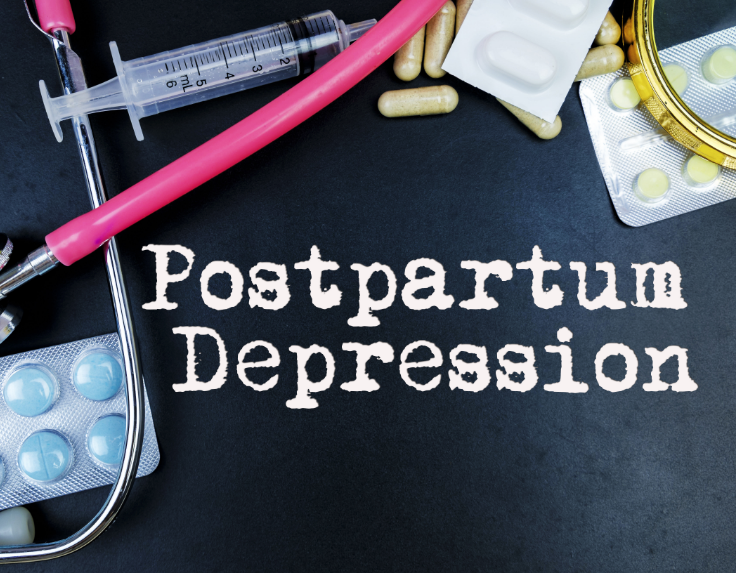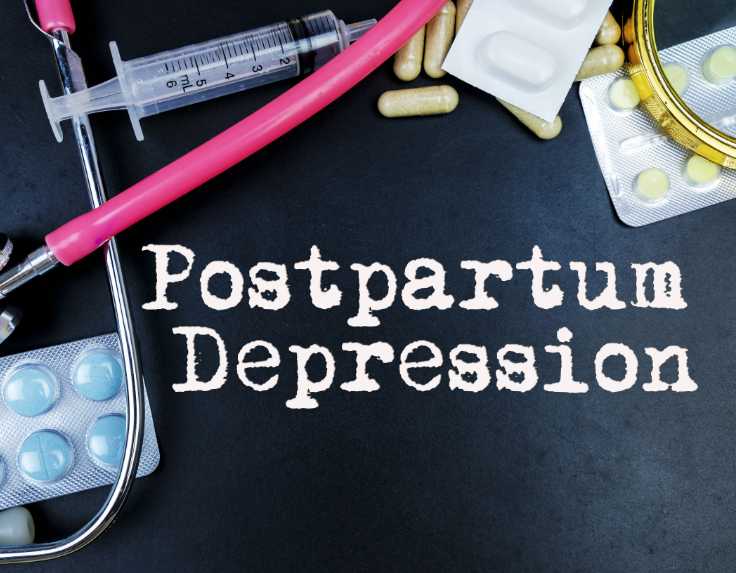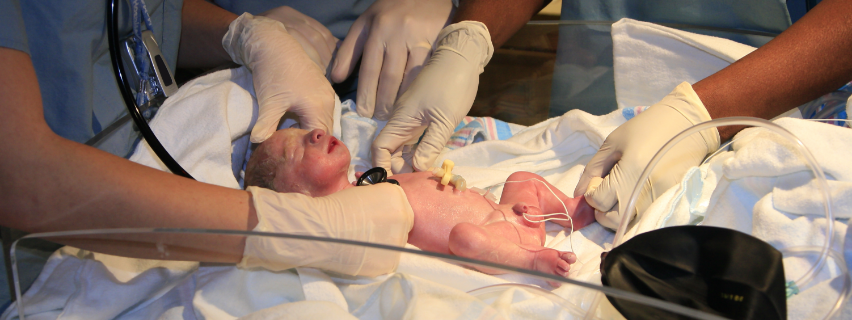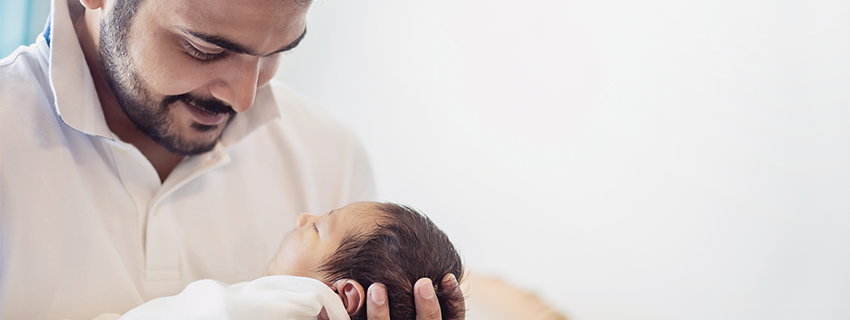What is postpartum depression? What are their symptoms and causes?
After childbirth, a woman’s body undergoes a lot of complex emotions, especially in terms of hormonal imbalance. Since it triggers a lot of emotions during these times it is common to feel anxious and fearful. Sometimes, the women may even slip into depression, also known as postpartum depression.
Many new mothers undergo postpartum depression or feel under the blues. It can lead to mood swings, anxiety, crying and even difficulty in sleeping. It is common to experience it in the first two or three days. However, if it persists for more than two weeks, it can be a cause of concern.
What is postpartum depression?
Postpartum depression refers to a mental health condition that tends to affect women right after they give birth. Due to postpartum depression, many women may feel lonely, restless or worthless for a long time. Furthermore, anxiety will also kick in.
It is common for women to experience mood swings after giving birth. For example, if they are happy now, they may start crying a few minutes later. While you may think that they feel okay when the baby is sleeping, they don’t. The postpartum depression symptoms last for a long time.
Therefore, in short, postpartum depression is a form of mental health condition after delivery. If you experience depression after delivery for two to three days, it is normal. You might as well consider it to be symptoms of baby blues. Baby blues are a normal part of you being a mother and tend to disappear within ten days. Nonetheless, there are women who experience these symptoms for more than ten days.

What is postpartum depression?

Postpartum depression refers to a mental health condition that tends to affect women right after they give birth. Due to postpartum depression, many women may feel lonely, restless or worthless for a long time. Furthermore, anxiety will also kick in.
It is common for women to experience mood swings after giving birth. For example, if they are happy now, they may start crying a few minutes later. While you may think that they feel okay when the baby is sleeping, they don’t. The postpartum depression symptoms last for a long time.
Therefore, in short, postpartum depression is a form of mental health condition after delivery. If you experience depression after delivery for two to three days, it is normal. You might as well consider it to be symptoms of baby blues. Baby blues are a normal part of you being a mother and tend to disappear within ten days. Nonetheless, there are women who experience these symptoms for more than ten days.
What are the causes of postpartum depression?
The exact cause of postpartum depression is unknown. One of the most probable postpartum depression causes is changes in hormonal levels of the body. Right after giving birth to a child, your body undergoes a lot of changes, especially in terms of chemical functionalities. This can however increase the risk of depression.
Nonetheless, you may also experience postpartum depression if you have had any of these:
● Previous history of postpartum depression.
● Premenstrual syndrome.
● Clinical depression
● Stress in work-life balance
● Lack of emotional support
● Stressful pregnancy
● Marital conflict
● Mood disorder family history
● Early age pregnancy
However, there are certain mental and physical factors that may contribute to postpartum depression. These include:
● Lack of sleep: Having a child can be an overwhelming experience. This is mostly because you have to be around them all the time. In such cases, you tend to lose sleep. This can however cause you trouble thereby preventing you from sleeping peacefully. The inability to sleep can often increase the risk of postpartum depression.
● Self-inferiority complex: After giving birth, many women feel that they aren’t attractive enough. This often causes self-image issues. In fact, many women also struggle with a sense of identity as they feel they are losing control of their life. This can eventually increase the risk of postpartum depression.
● Hormones: After childbirth, there is a significant drop in progesterone and estrogen levels. These hormones are crucial during the childbirth stage. Apart from these, there may also be a steep decline in other hormones that can make you feel stressed and depressed. It will also make you feel sluggish and unable to function normally.
● Anxiety: Many women are likely to experience anxiety after giving birth to a child. This is mostly because they feel under confident considering that they may not be able to take care of the child. Therefore, this feeling of anxiousness can eventually lead to an increased risk of postpartum depression.
What are the postpartum depression symptoms?
It can be tough to detect the signs of postpartum depression. Many women may skip it thinking that it’s a regular habit. However, it is a serious condition that needs to be addressed.
Some of the common postpartum depression symptoms include:
● Inability to sleep
● Appetite change
● Lower libido
● Sudden mood changes
● Severe fatigue
Many women are also likely to experience the other symptoms of depression, which may or may not be related to childbirth. Some of these unusual postpartum depression symptoms include the following:
● Feeling crankiness
● Loss of happiness and pleasure
● Being uninterested in the baby
● Constant crying for no reason
● Constantly thinking that they might hurt someone
● Suicidal thoughts
● Trouble in concentration
Furthermore, around 1-3% of women are also likely to experience obsessive-compulsive disorder or OCD. This may often be because of the thoughts related to the baby’s health or harming the baby. Many new mothers may also experience panic attacks.
If postpartum depression isn’t treated in new mothers, it can be slightly problematic. It is advisable to seek professional help as soon as possible. Some of the conditions, when the new moms should consider getting help from professionals include:
● They aren’t able to work.
● The symptoms have existed for more than two weeks.
● They have been feeling anxious and stressed for a long time.
● They are unable to cope with the situation.
What are the risk factors and complications in postpartum depression?
If postpartum depression isn’t treated in time, it can hamper your bond with the child. Furthermore, it will have a lot of negative impact on your relationship with your family members.
If the postpartum depression isn’t treated, it can even turn to chronic depressive order. Furthermore, it can lead you to have multiple episodes of depression in the long run. Apart from mothers, fathers are also prone to experience postpartum depression. Children of depressed mothers can also experience postpartum depression. They tend to cry more than usual and have delayed development.

Can We Prevent Postpartum Depression?
Postpartum depression is a condition that can be avoided. Nonetheless, if you have had a history of postpartum depression in previous pregnancies, you are likely to experience it again. The best thing to do is to maintain a positive attitude. The more you keep your mind and body healthy, the faster you will recover.
It is advisable to stay away from caffeine and alcohol. If you are likely to experience postpartum depression symptoms, you need to stop their consumption. Furthermore, it is also advisable to bring some changes in the lifestyle. Psychotherapy and antidepressant medicines can however be of great help for overcoming the condition.
If anyone is suffering from postpartum psychosis, they may be recommended to take psychosis drugs. In such cases, it is advisable to undergo hospital admission. Breastfeeding mothers can also take these medicines. However, before starting the use of these medicines, it is advisable to consult the doctor. The doctor will determine whether or not you should take these antidepressants depending on your condition.
When to consult a doctor?
If your condition has worsened and lasted more than ten days, you are likely to experience it frequently. Therefore, in such cases, you must consider reaching out to a doctor.
Key Takeaways
Once Prega News delivers the good news of your pregnancy, you must take good care of your physical and mental health to ensure that the journey is smooth and you deliver a healthy baby. It is also important to manage your own health to avoid the risk of postpartum depression and maintain a positive attitude. In spite of all precautions, if you ever experience the symptoms of postpartum depression, you need to get in touch with the doctor. Furthermore, having a healthy lifestyle can also be of great help in overcoming these challenges due to postpartum depression.
FAQ
● What are the signs and symptoms of the postpartum period?
Anxiety, restlessness and feeling of worthlessness are some of the common symptoms of postpartum depression. Mothers may also experience constant crying.
● Is PPD the same as depression?
No. Although the symptoms are very similar, PPD usually goes away in two to three weeks, but depression usually lasts longer.
● How can you reduce the risk of postnatal depression?
Eating healthy and following a healthy lifestyle can be the key self-help methods to reducing the risk of postnatal depression.
● How long can you go through postpartum?
Usually, women can go through two to three weeks of postpartum depression.
● Can depression affect breastfeeding?
Yes. In many cases, the mother may not feel attached to the child. Therefore, she may refrain from breastfeeding the child.
Keep your mind positive. Eat healthy food and stay cheerful. Postpartum depression is a short phase and you can snap out of it with some self-love and help from a caring partner. In case the symptoms persist, it is best to seek a medical opinion.







































Leave a comment